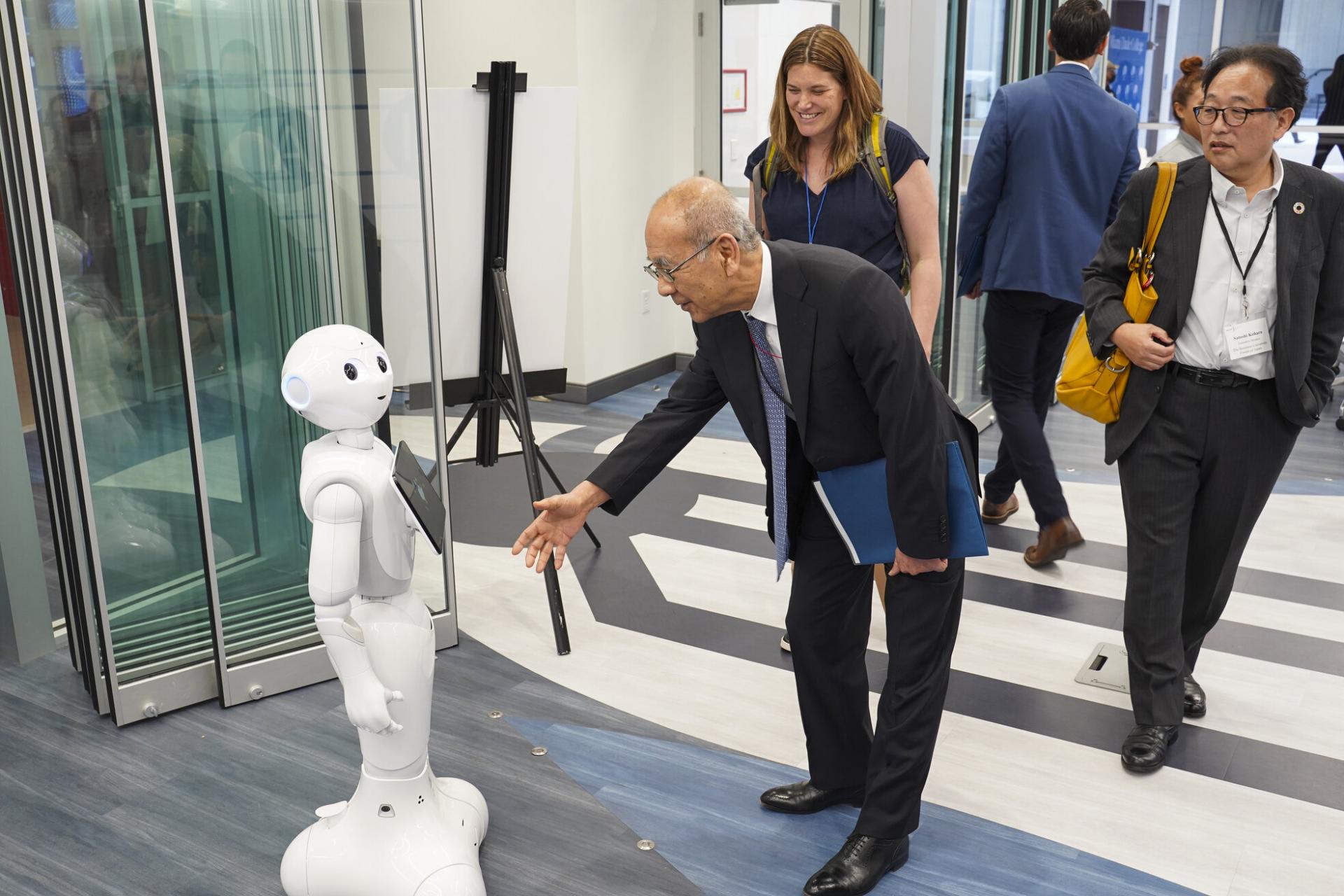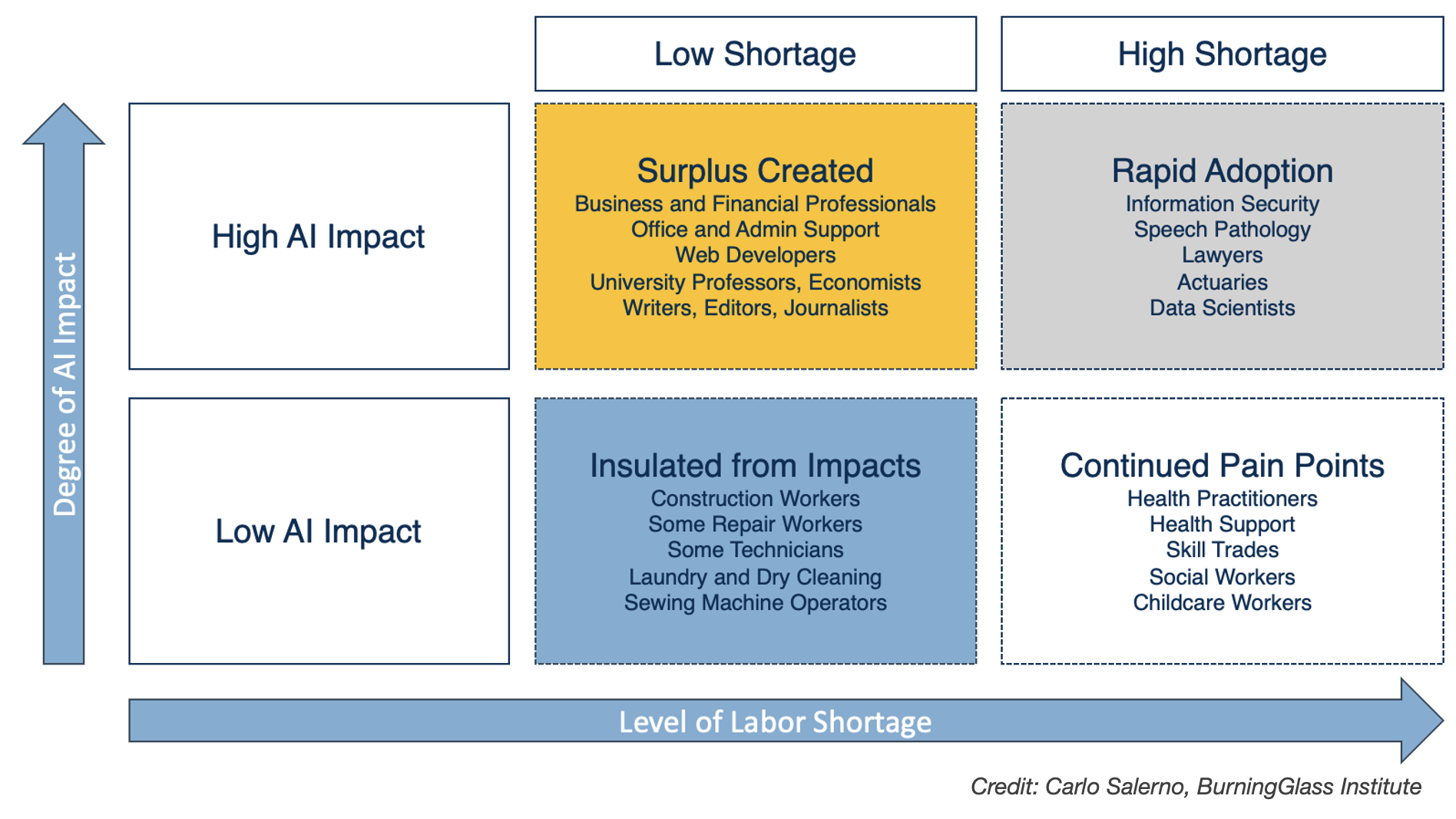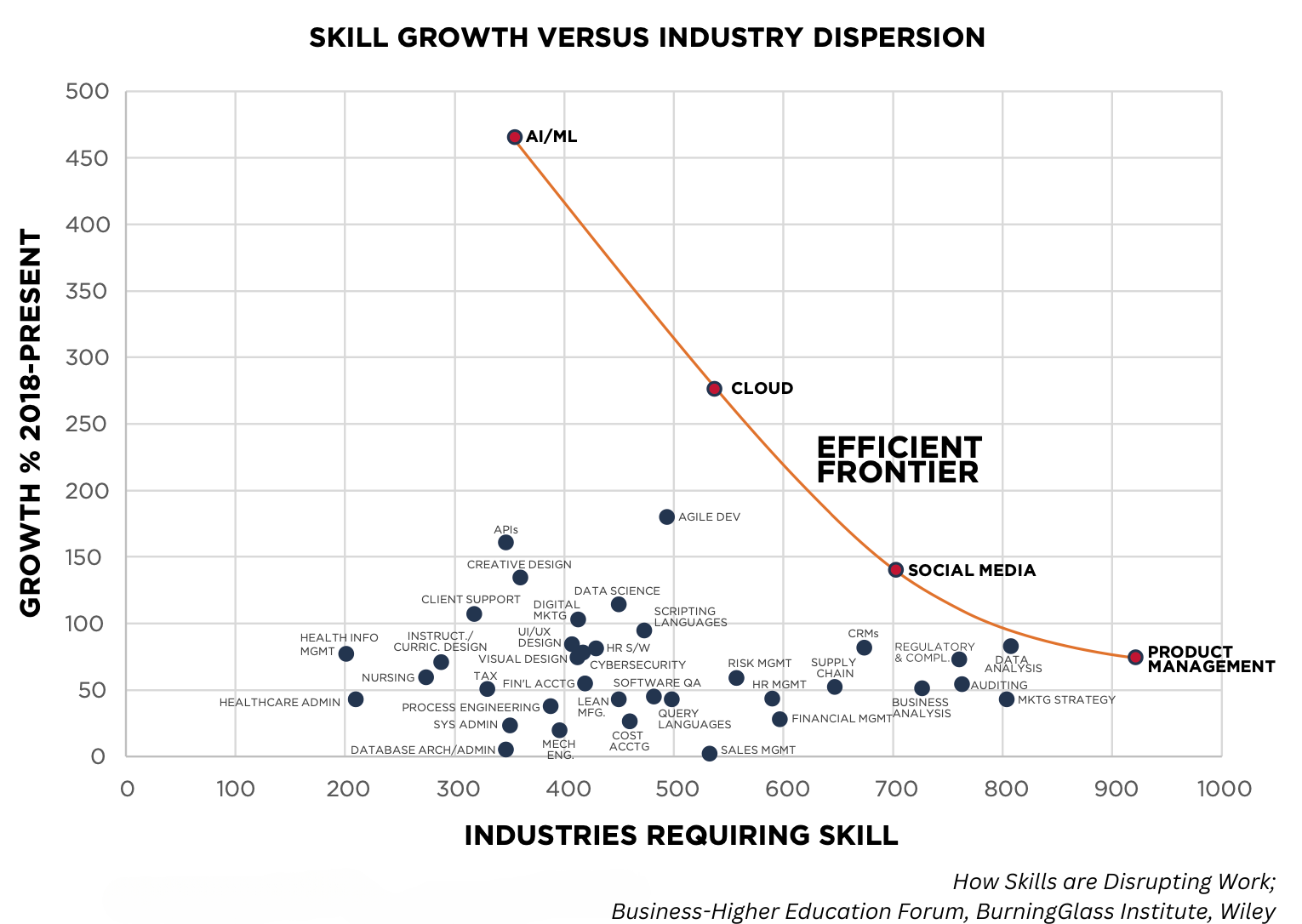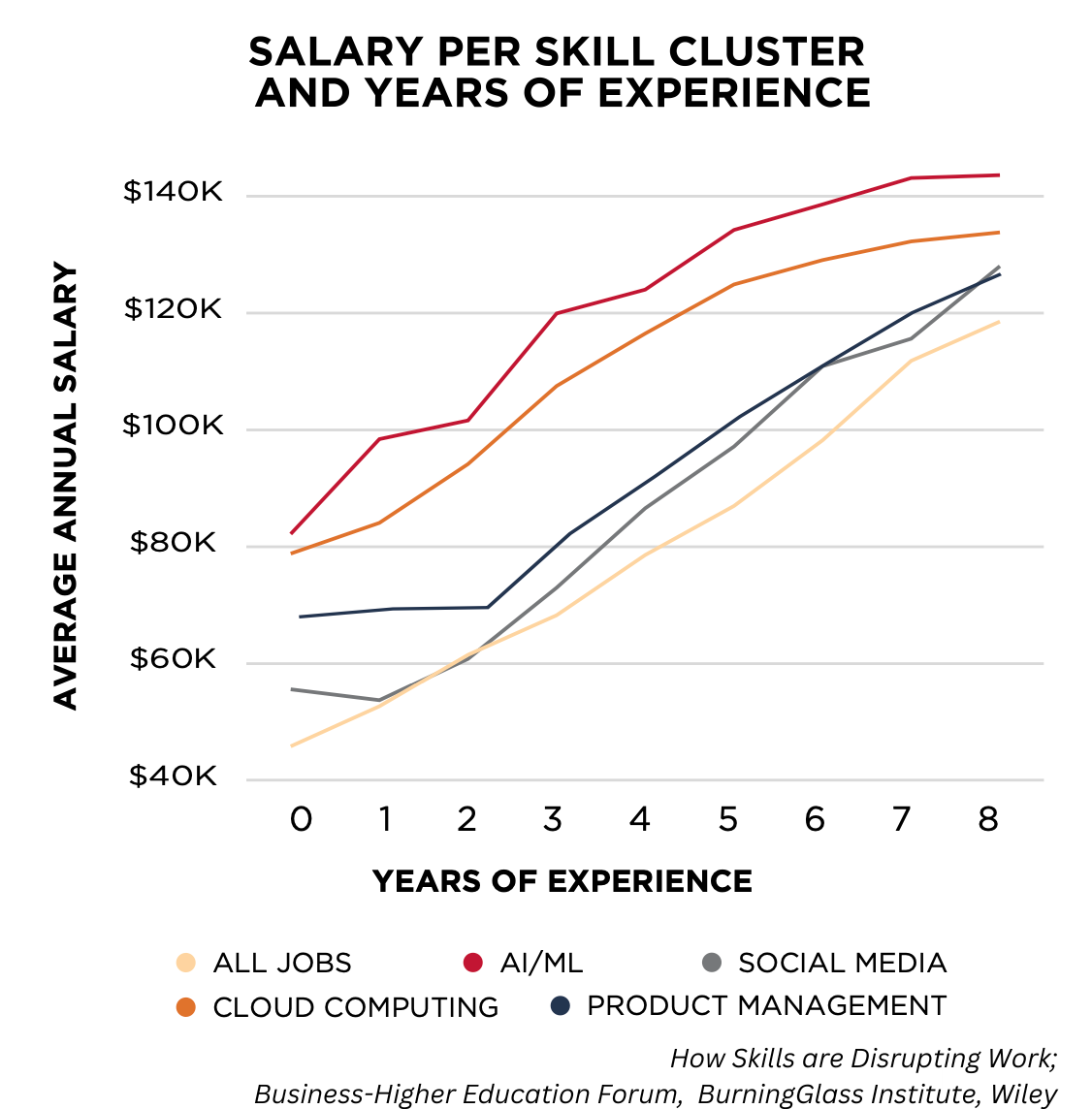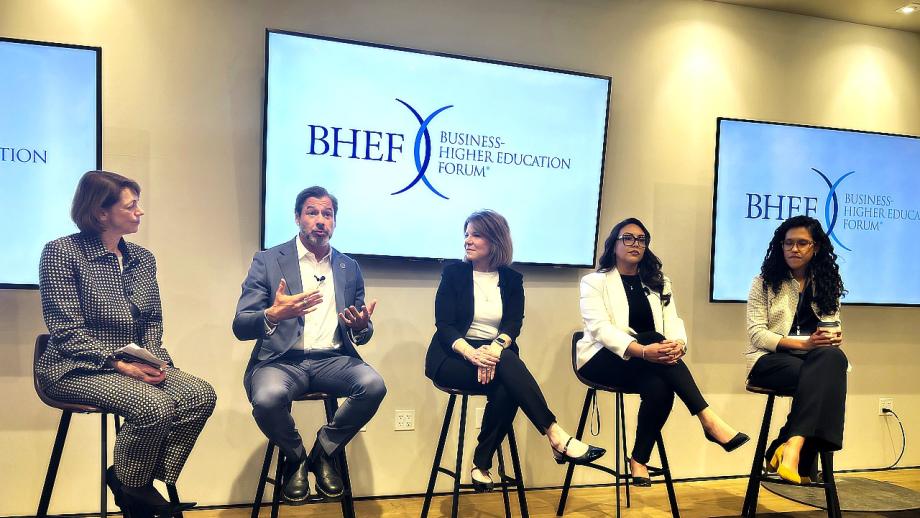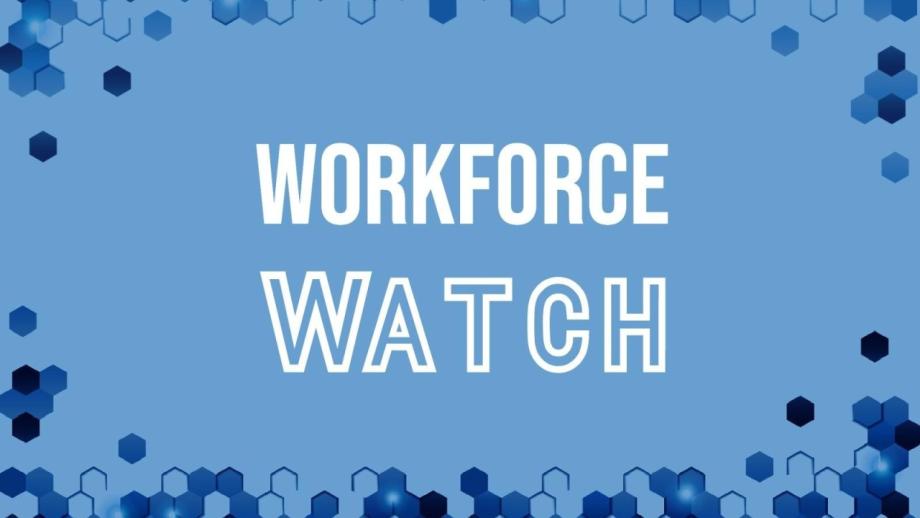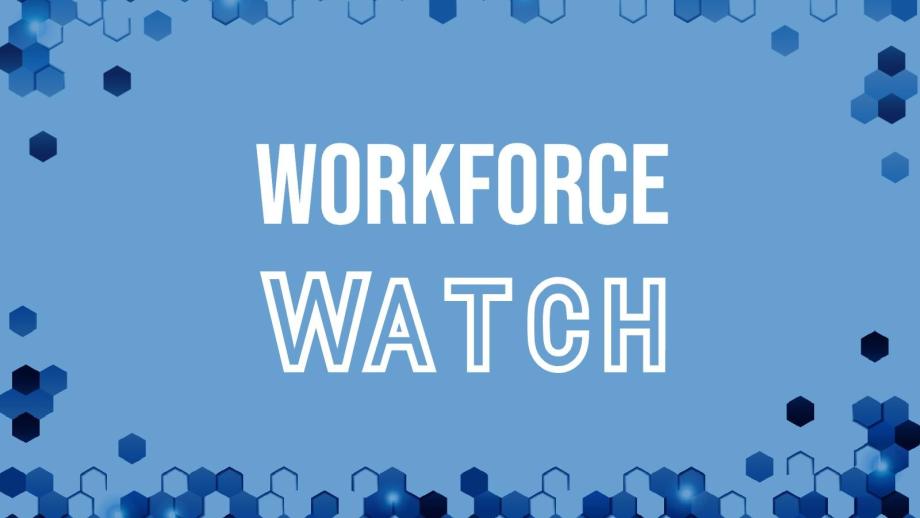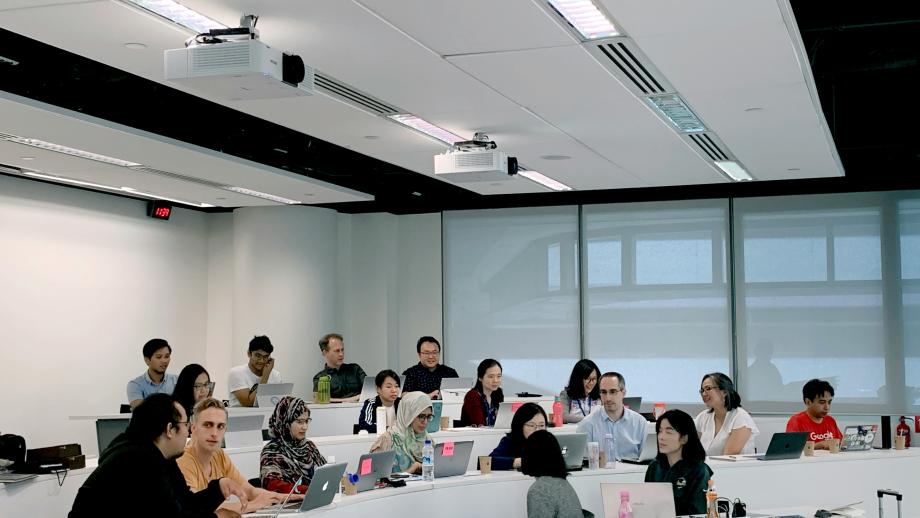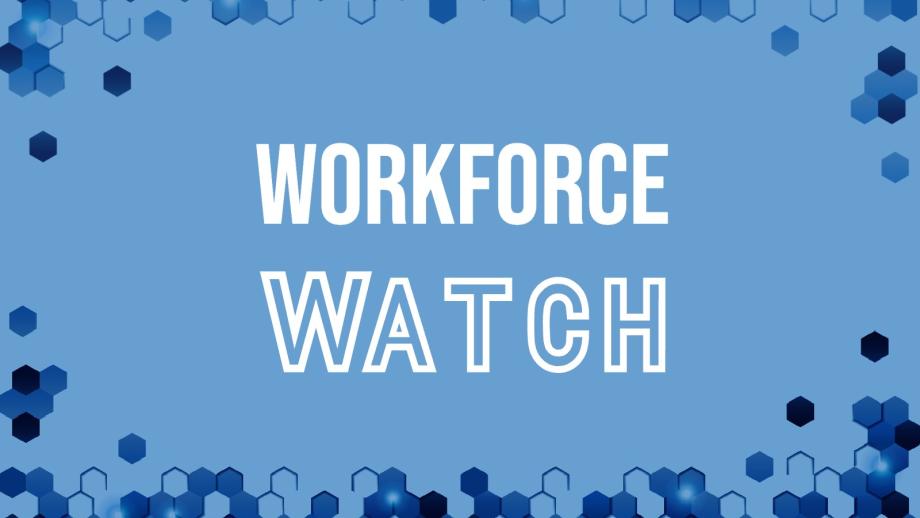The Business-Higher Education Forum convened education and business leaders at Miami Dade College in March 2024 to distill the latest insights on the impact of artificial intelligence (AI) on the workforce and to share and develop proactive and collaborative strategies to address worker and learner needs. Some of the key takeaways and calls to action from the event included:
AI is quickly changing the world of work unevenly across roles, sectors, and regions—and education strategies must evolve in response to entry-level reskilling and upskilling needs
AI increases workers’ productivity and proficiency in completing certain tasks and is unevenly impacting occupations across a variety of industries. While AI means significant transformation for some jobs (e.g., web development, copyeditors), for a greater swath of jobs it augments or automates parts of roles, impacting proficiency or productivity and shifting the skill profiles needed for those roles. According to a study by the Business-Higher Education Forum, Burning Glass Institute, and Wiley, 37 percent of the skills in the average job have been replaced over the past 5 years, meaning that reskilling and upskilling will become even more imperative for business and education collaboration. For the top quartile of in-demand jobs, 75 percent of skill requirements have changed.
Industries that will be most disrupted include those with high technology use (e.g., publishing, finance, and insurance), but for those industries where technology use is low and work is more physical in nature, we are likely to see less risk of AI-based disruption (e.g., construction, mining, hospitality). Overall, we are seeing an expectation of baseline AI literacy across all jobs and roles—from the highly technical to the front-line professional.
AI literacy is required across a broad swath of job functions
At eMed, a fast-growing healthcare technology company in Florida, Ken Finneran, VP or Human Resources, shared that they take an expansive view to hiring AI talent. At their organization, no job titles include AI because AI skills are implicitly required in most of the company’s positions. “It's a discipline, mindset, and skillset. It's an additive to existing roles that enhances productivity." Not to say that all learners and workers need to be AI experts: some jobs require AI awareness, others require practical AI proficiency, and some will require AI expertise. We’re also starting to see that employers hiring for highly technical jobs are assuming applicants hold baseline AI capabilities.
Digital skills are among the most rapidly spreading skills and help learners and workers find areas of wage premium—and are particularly powerful in combination with key durable skills
AI is one of a set of high-growth, high-wage premium skills that enable professionals across roles to garner wage premiums and transition into new roles, as seen in the chart below. (These data are reflective of December 2022, and, since that time, we’ve seen an increase in AI/ML skills demand broadly across industries.)
These cross-cutting digital skills command wage premiums across occupations and are aligned to key business needs. However, they are even more powerful when in combination with durable skills that include human skills (e.g., communication, collaboration), business enablers (e.g., project management, data communication), and data building blocks (e.g., data analysis, coding).
Higher education and business note that an interdisciplinary approach to AI is critical to preparing talent for the workforce of the future—and ensuring we mitigate AI risks.
Due to the cross-cutting nature of AI’s impact on the workforce, leading institutions are ensuring AI skills are being embedded in courses across majors and disciplines. Carnegie Mellon University, Miami Dade College, Northeastern University, and the University of Florida are four institutions with highly diverse missions yet united in their commitment to ensuring their learners are equipped for a changing world of work. Each institution ensures that their approach includes technical training for AI practitioners and researchers as well as intentional interdisciplinary approaches across the curriculum.
Broadening access to AI skill development means that developers and users are more likely to reflect society; curate and consume data in ways that represent our nation’s diversity of backgrounds and experiences; understand the importance of strong, transparent governance practices; and test models to ensure equitable access, tools, and outcomes. As Phaedra Boinodiris, IBMs Consulting’s Global Leader for Responsible AI reminded us, confronting bias in AI is a profoundly human problem, noting, “Data is an artifact of the human experience. How it’s used by AI models can reflect our biases back to us like a mirror. This gives us the opportunity to self-reflect and change."
Industry-education partnerships are critical levers catalyzing relevant digital-ready skills
Miami Dade College is democratizing AI talent by creating new pathways for a broad set of learners and workers, creating “ready now” and upskilled talent—and its low barrier to entry is already demonstrating impact. Their success metrics are simple: the number of people served and the share that apply their AI skills to obtain a job or upskill within their current company. The AI certificate and associate-degree programs are infused with industry alignment through a robust advisory panel and close collaboration with the Miami Tech Talent Coalition. Its ecosystem approach, working closely with four-year institutions, employers, and community-based organizations, has launched Miami as a regional talent hub, now strengthened with the support of the Good Jobs Challenge investment of $10 million.
And while progress is being made to empower learners and workers to leverage AI acumen to achieve professional success and economic mobility, business-higher education partnerships are key to the equitable evolution of AI models, tools, and practices. These partnerships should include sharing best practices between leading academic researchers, industry practitioners, instructional faculty and curious, creative learners—in every possible combination.
Join us as we build momentum for the work ahead
Our work ahead is focused on supporting our members—leaders and innovators across business and education—as they continue to catalyze action toward talent pathways for critical emerging skill competencies needed for a digitally enabled future, including but not limited to AI. Join us as we work to build business-education partnerships that prepare more talent, more efficiently and more inclusively for the good jobs that are critical to the economic mobility and success of our workforce, businesses, and country. Sign up to receive our newsletter in the footer below, follow us on LinkedIn, or reach out via email.
Business-Higher Education Forum member meetings are closed session meetings that enable frank and candid sharing of ideas among members and invited guests. Selected quotes are shared with the express permission of those cited.
